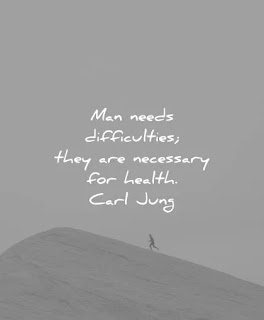- Get link
- X
- Other Apps
Coffee Eradicate Depression
Coffee is a plant (Coffea) and the name of the drink that is made from this plant. ... The drink is made from the seeds of the coffee plant, called coffee beans. Coffee is usually served hot and is a popular drink in many countries. Coffee contains a chemical called caffeine, a mild drug that keeps people awake.
Caffeine is a stimulant present in coffee and tea, among other foods and beverages. It provides a kick of energy. Research is inconclusive as to whether caffeine helps people with depression or makes the symptoms worse. Coffee is produced from the seeds of a small red (sometimes yellow) fruit that grows on plants halfway in size between shrub and tree.
The process that turns these seeds into beverages is a long and complex process, perhaps the most complex process associated with any major beverage. Across all three studies, people who drank more coffee had a lower long-term risk of heart failure. Among those in the Framingham and Cardiovascular Health studies, the risk of heart failure fell by 5%-12% per cup of coffee per day, compared to people who drank no coffee.“For most people, moderate coffee consumption can be incorporated into a healthy diet.” Hu said that moderate coffee intake—about 2–5 cups a day—is linked to a lower likelihood of type 2 diabetes, heart disease, liver and endometrial cancers, Parkinson's disease, and depression.
Scientific studies into the relationship between caffeine and depression have often shown that caffeine can reduce the incidence of depression. Some studies even suggest that caffeine intake could reduce the incidence of suicide.
Caffeine may also have mental health benefits over time. For one, it has been associated with a lessened risk of depression.
One of the reasons is that caffeine causes your body to increase the level of dopamine in your brain, which is the chemical that causes you to feel happy. Yes, coffee, at least the kind with caffeine, can literally make you happier.
The caffeine in coffee can help you focus and be more productive and, in so doing, may help decrease your feelings of anxiety. When people feel overwhelmed they often become anxious.
Studies reviewed in the meta-analysis show coffee's anti-inflammatory properties are associated with decreased depression. Caffeine blocks mood-depressing chemicals in the brain. Caffeine blocks receptors in the brain from binding with a chemical (adenosine) that causes fatigue and depressed mood.
Caffeine promotes CNS stimulation, making you feel alert. Caffeine is the key reason why coffee boosts brain function. This stimulant blocks adenosine, an inhibitory neurotransmitter in the brain that makes you sleepy.
Too much caffeine can result in the “jitters.” So what impact does that have on anxiety? Can coffee cause anxiety? The short answer is: no, coffee doesn't cause anxiety. But, caffeine, in general, may worsen symptoms in people already prone to anxiety.
7 Alternatives to Coffee (And Why You Should Try Them)
- Chicory Coffee. Like coffee beans, chicory root can be roasted, ground, and brewed into a delicious hot beverage.
- Matcha Tea.
- Golden Milk.
- Lemon Water.
- Yerba Mate.
- Chai Tea.
- Rooibos Tea.
- Get link
- X
- Other Apps





Comments
Post a Comment
Thank you for your comment!
For more interesting health tips and tricks please visit my blog again and again .